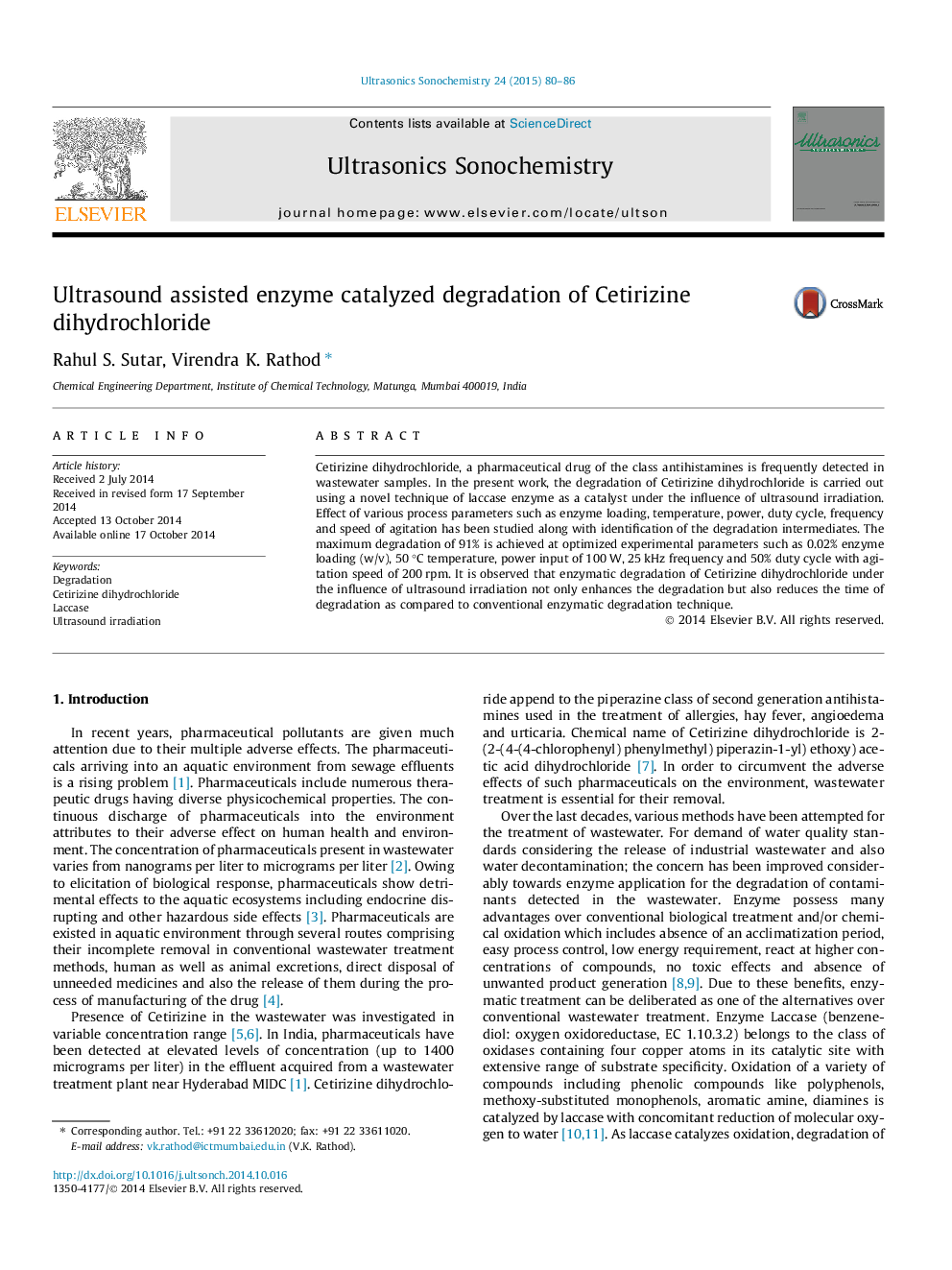| کد مقاله | کد نشریه | سال انتشار | مقاله انگلیسی | نسخه تمام متن |
|---|---|---|---|---|
| 1266698 | 1496880 | 2015 | 7 صفحه PDF | دانلود رایگان |
• Novel process for enzymatic degradation of Cetirizine dihydrochloride with ultrasound.
• Process parameters are optimized for maximum extent of degradation.
• Maximum degradation obtained in ultrasound assisted enzymatic degradation.
• Useful approach for degradation of other pharmaceuticals having slower reaction rate.
Cetirizine dihydrochloride, a pharmaceutical drug of the class antihistamines is frequently detected in wastewater samples. In the present work, the degradation of Cetirizine dihydrochloride is carried out using a novel technique of laccase enzyme as a catalyst under the influence of ultrasound irradiation. Effect of various process parameters such as enzyme loading, temperature, power, duty cycle, frequency and speed of agitation has been studied along with identification of the degradation intermediates. The maximum degradation of 91% is achieved at optimized experimental parameters such as 0.02% enzyme loading (w/v), 50 °C temperature, power input of 100 W, 25 kHz frequency and 50% duty cycle with agitation speed of 200 rpm. It is observed that enzymatic degradation of Cetirizine dihydrochloride under the influence of ultrasound irradiation not only enhances the degradation but also reduces the time of degradation as compared to conventional enzymatic degradation technique.
Journal: Ultrasonics Sonochemistry - Volume 24, May 2015, Pages 80–86
